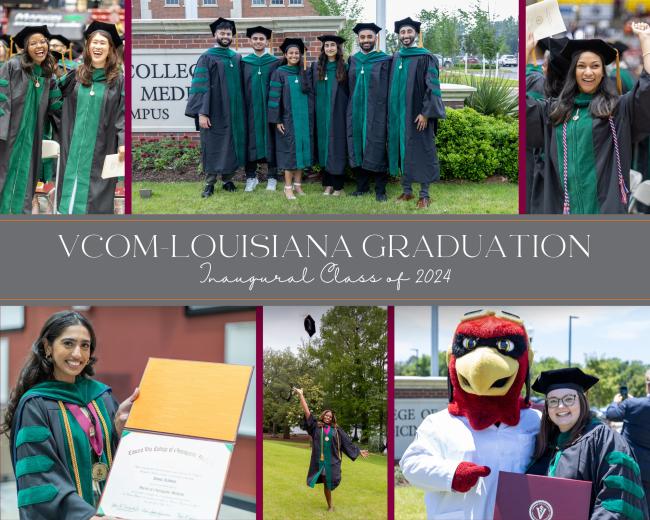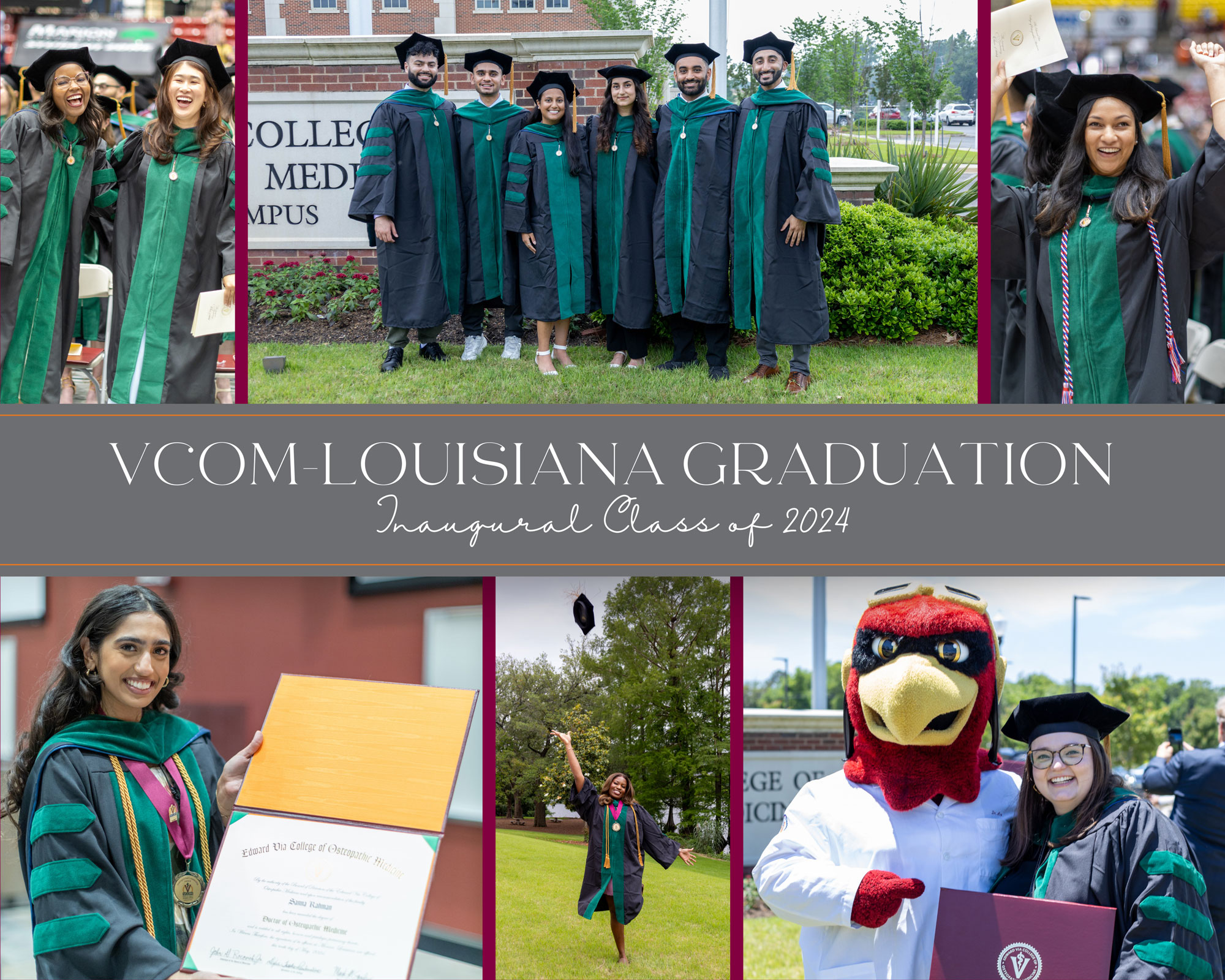
On May 10, 2024, VCOM-Louisiana will once again make history when it graduates the state’s first class of osteopathic physicians. The 139 graduates comprising the campus’s inaugural Class of 2024 will represent the first step toward resolving the physician shortage in Louisiana and the Delta region.
A New Philosophy on Medicine
While osteopathic medicine has been around since the late 1800s, it is still relatively new to Louisiana, which, in the early 2000s, was the 50th state to recognize those who held a doctor of osteopathic medicine (DO) degree as fully licensed physicians. Prior to that milestone, osteopathic physicians were unable to practice medicine within the state of Louisiana and would either commute to neighboring states to practice or move out of the state entirely. This only served to further the healthcare shortage in Louisiana.
Osteopathic physicians (DOs), like their allopathic (MD) counterparts, study all aspects of medicine and must undergo multiple comprehensive board exams in order to become licensed to practice medicine. One distinct difference between the two healthcare philosophies is in how they treat their patients. Traditionally, MDs are trained to treat their patients’ symptoms, while DOs are trained to treat their patients holistically.
Treating Patient Ailments at the Source
Osteopathic Manipulative Medicine (OMM) is the hallmark of the osteopathic philosophy. DO students are required to complete 200+ hours of OMM during their four years of medical school, in which they become intricately familiar with the human body’s musculoskeletal system and the manipulations that can be done to the body to provide relief to patients for a variety of ailments. This practice is invaluable for primary care physicians who often provide care for their patients from birth to adulthood and beyond.
It is no surprise, then, that the majority of DOs practice in a primary care specialty, such as pediatrics, obstetrics and gynecology, family medicine, internal medicine and geriatrics. Not all DOs practice primary care, however. In fact, DOs currently practice in every medical specialty and are qualified to provide the same medical care and services as their MD counterparts.
Bridging the Gap Between MDs and DOs
Despite the initially slow move to recognize osteopathic physicians across the country, there has been a strong push in recent years to move osteopathic medicine into the forefront of healthcare. In addition to a significant increase in the number of osteopathic medical colleges that have opened across the country, including VCOM’s own fourth campus in Monroe, Louisiana, there have also been changes in requirements for medical licensure and training nationwide.
Only a few short years ago, MD and DO licensure exams and residency programs were completely separate and distinct from one another, despite the fact that medical students in both MD and DO programs receive the same medical education. In fact, the only difference in training between allopathic and osteopathic medical schools is the 200+ hours of OMM training that DOs receive.
As osteopathic medicine has become more mainstream, the medical community at large has begun to recognize the value of OMM as a tool for helping better understand and treat their patients’ ailments. This has led many MDs to seek supplementary training in OMM to enhance their own practices.
Equal Opportunities for Osteopathic Medical Students
As the osteopathic philosophy of medicine has become more familiar and better understood by the public, there has been a push for better integration between allopathic and osteopathic licensure and training. Previously, osteopathic medical students were required to take the allopathic board examination (USMLE) in order to apply for MD residencies. However, a recent merger between the two programs has given the osteopathic board examination (COMLEX-USA) an equal weight with the USMLE in regard to post-graduation medical training.
The newly integrated residency placement program allows students from both allopathic and osteopathic schools to compete for the same residencies, rather than having MD-specific or DO-specific residencies. This collaboration is a huge step toward improving access to healthcare, as it opens up a significant number of residency opportunities for osteopathic students and allows them to continue their training in specific specialties and areas of the country that may have previously been unavailable to them. The impact of this has the potential for far-reaching positive effects, particularly in rural and medically underserved areas of the country.
A Medical School Unlike Any Other in Louisiana
As the only osteopathic medical school in the state, VCOM-Louisiana, with its focus on rural and medically underserved areas, is poised to make significant strides in the Delta region. Unlike many other medical schools, VCOM recruits students who come from rural and medically underserved communities where physicians are most needed. In fact, more than a third of VCOM-Louisiana’s students are from Louisiana, and nearly a quarter of VCOM graduates across its four campuses are practicing within 75 miles of where they grew up. The result of this recruiting focus is that a majority of VCOM students share the College’s passion for the communities where they grew up. The increase in primary care physicians in other states where VCOM has campuses stands as a testament to the success of this recruiting strategy.
In just a few short weeks, VCOM’s newest campus will join the ranks of its sister campuses in sending out well-trained and highly qualified physicians who have a passion for medicine and making a difference in their communities. Every single one of these new graduates will be heading to a residence—a 100% match rate that is higher than the national average, a testament to the quality of the medical education available at VCOM-Louisiana. This is truly a special moment in time for a state that is very much in need of a change in its healthcare landscape.
